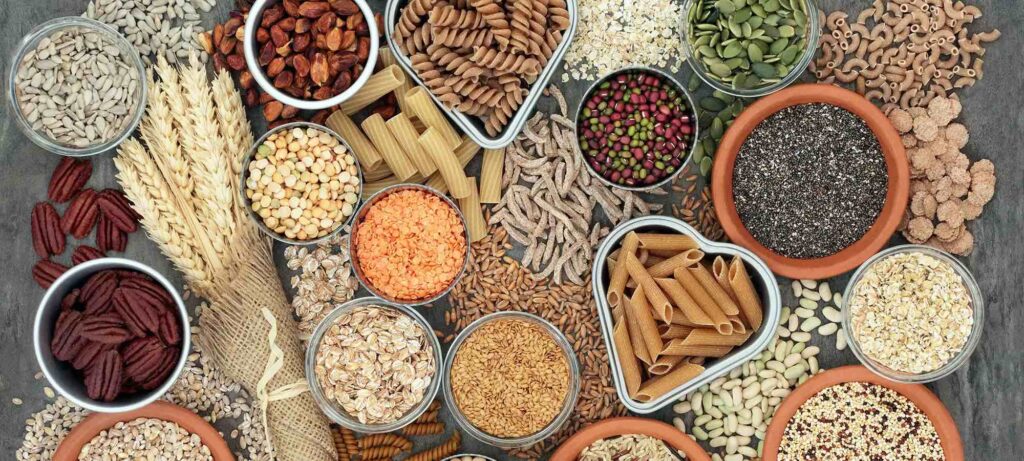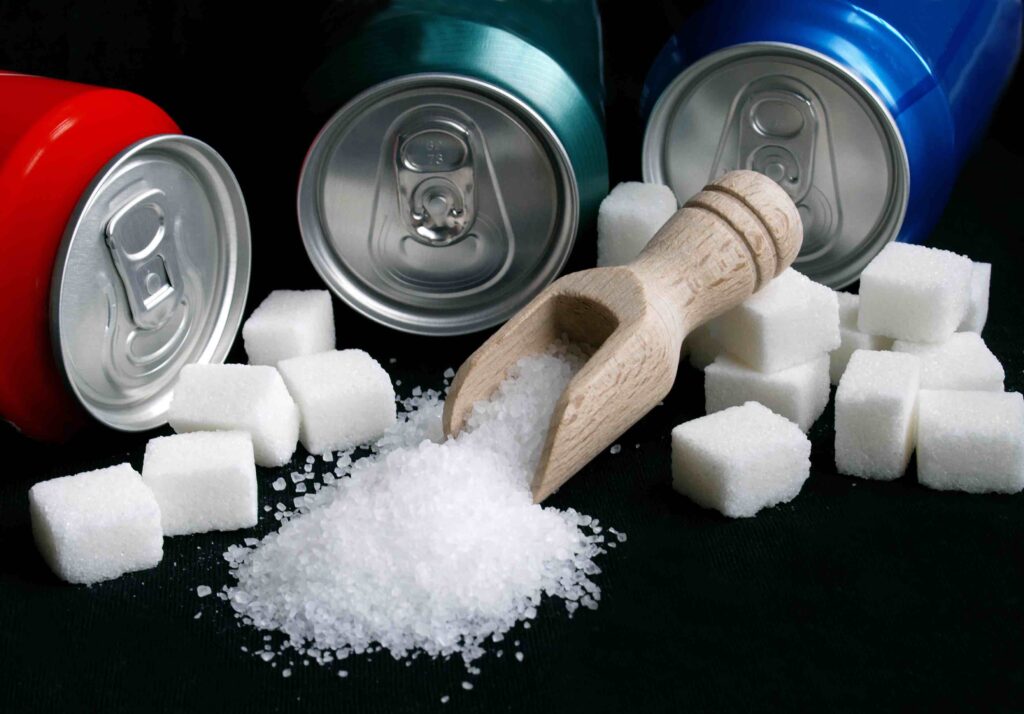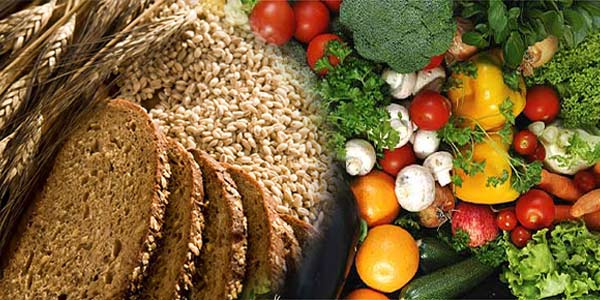Prevenire ulteriori infezioni e morti per Covid-19
All’inizio della pandemia abbiamo subito raccomandato di prestare attenzione al cibo che mangiamo e all’esercizio fisico quotidiano, perché già si sapeva che chi ha un’alimentazione ricca di fibre e chi fa regolarmente esercizio fisico ha difese immunitarie significativamente migliori.

Già si sapeva inoltre che lo zucchero danneggia le cellule del sistema immunitario e che le bevande zuccherate facilitano l’insorgenza di periodontiti, stomatiti, coliti, cistiti e bronchiti, per cui sarebbe stato prudente limitarne il consumo.
Poi si seppe che la pandemia uccideva soprattutto i diabetici, gli obesi, gli ipertesi, i cardiopatici e in generale chi aveva la glicemia elevata: la glicemia alta in particolare aumentava il rischio di ospedalizzazione, di gravi complicazioni respiratorie e di mortalità per Covid-19.

Sarebbe stato abbastanza per dare raccomandazioni di stile di vita.
Uno studio su 158 paesi mostrò una significativa correlazione fra mortalità per Covid-19 e il consumo pro capite medio di bevande zuccherate; la mortalità era più alta anche dove si consumava più carne, succhi di frutta e latte, mentre diminuiva all’aumentare del consumo di verdure e, significativamente, di legumi.
Oggi tre studi importanti appena pubblicati mostrano che la nostra preoccupazione e i nostri consigli di stile di vita erano giustificati.
La dieta mediterranea e in generale una dieta prevalentemente vegetale e integrale, ricca delle fibre dei cereali integrali, dei legumi, della verdura, della frutta e dei semi oleaginosi, e l’esercizio fisico quotidiano riducono sia il rischio di infettarsi sia, per chi contrae comunque l’infezione, il rischio di complicazioni gravi.

La prima pubblicazione è dell’università di Harvard, che da decenni studia le abitudini alimentari dei lavoratori della sanità negli Stati Uniti. Su 43.000 persone esaminate, 1941 riferirono uno o più test positivi. Il rischio di infezione è risultato del 22% inferiore in chi aveva una dieta che più si avvicinava alla dieta mediterranea, e la protezione aumentava quando si consideravano le infezioni sintomatiche, i sintomi gravi e le ospedalizzazioni.
La seconda pubblicazione, precedente, riferisce di uno studio condotto in sei paesi sui medici che per lavoro erano a frequente contatto con malati di covid-19 e riscontra differenze importanti di abitudini alimentari fra chi si è infettato ma senza sintomi o solo sintomi lievi (430 persone) e chi chi ha avuto sintomi gravi (138 persone): chi aveva una dieta prevalentemente vegetale riduce significativamente il rischio di malattia grave, del 73%.
La terza pubblicazione è una meta-analisi che riporta il risultato medio di 16 studi che hanno confrontato il rischio di ammalarsi di chi fa regolarmente esercizio fisico e di chi ha una vita sedentaria. L’esercizio fisico è associato a minor rischio di infettarsi (-11%), di finire in ospedale (-36%) e di morire di Covid-19 (- 43%).
Ci auguriamo che le autorità sanitarie si rendano conto di quanto lo stile di vita influenza il rischio di ammalarsi di Covid-19 e si impegnino per informarne la popolazione.
Riportiamo in appendice i “summary” dei tre articoli.

Am J Clin Nutr. 2022 Aug 9; doi: 10.1093/ajcn/nqac219.
Long-term diet and risk of SARS -CoV-2 infection and Coronavirus Disease 2019 (COVID-19) severity
Yiyang Yue , Wenjie Ma , Emma K Accorsi , Ming Ding , Frank Hu , Walter C Willett , Andrew T Chan, Qi Sun, Janet Rich Edwards, Stephanie A Smith-Warner, Shilpa N Bhupathiraju.
Background: The role of diet on COVID-19 is emerging.
Methods: We included 42,935 participants aged 55 to 99 years in two ongoing cohort studies, Nurses’ Health Study II and Health Professionals Follow-up Study, who completed a series of COVID-19 surveys in 2020 and 2021. Using data from food frequency questionnaires prior to COVID-19, we assessed diet quality using the Alternative Healthy Eating Index (AHEI)-2010, the alternative Mediterranean Diet (AMED) score, an Empirical Dietary Index for Hyperinsulinemia (EDIH), and an Empirical Dietary Inflammatory Pattern (EDIP). We calculated multivariable adjusted odds ratios (Ors) and 95% confidence intervals (95% Cis) for SARS-CoV-2 infection and severity of COVID-19 after controlling for demographic, medical, and lifestyle factors.
Results: Among 19,754 participants tested for SARS-CoV-2, 1,941 participants reported a positive result. Of these, 1,327 reported symptoms needing assistance and another 109 were hospitalized. Healthier diet, represented by higher AHEI-2010 and AMED scores and lower EDIH and EDIP scores, were associated with lower likelihood of SARS-CoV-2 infection (Ors Q (quartile) 4 vs. Q1 (95%CI) were 0.80 (0.69, 0.92) for AHEI-2010; 0.78 (0.67, 0.92) for AMED; 1.36 (1.16, 1.57) for EDIH; and 1.13 (0.99, 1.30) for EDIP; all p for trend ≤ 0.01). In the analysis of COVID-19 severity, participants with healthier diet had lower likelihood of severe infection and were less likely to be hospitalized due to COVID-19. However, associations were no longer significant after controlling for BMI and pre-existing medical conditions.

Br J Sports Med 2022. Doi:10.1136/bjsports-2022-105733
Physical activity and risk of infection, severity and mortality of COVID-19: a systematic review and non-linear dose–response meta-analysis of data from 1 853 610 adults
Yasmin Ezzatvar,Robinson Ramírez-Vélez, Mikel Izquierdo, Antonio Garcia-Hermoso
Objective To quantify the association between physical activity and risk of SARS-CoV-2 infection, COVID-19-associated hospitalisation, severe illness and death due to COVID-19 in adults.
Design A systematic review and meta-analysis.
Data sources Three databases were systematically searched through March 2022.
Eligibility criteria for selecting studies Peer-reviewed articles reporting the association between regular physical activity and at least one COVID-19 outcome in adults were included. Risk estimates (ORs, relative risk (RR) ratios or HRs) were extracted and pooled using a random-effects inverse-variance model.
Results Sixteen studies were included (n=1 853 610). Overall, those who engaged in regular physical activity had a lower risk of infection (RR=0.89; 95% CI 0.84 to 0.95; I2=0%), hospitalization (RR=0.64; 95% CI 0.54 to 0.76; I2=48.01%), severe COVID-19 illness (RR=0.66; 95% CI 0.58 to 0.77; I2=50.93%) and COVID-19-related death (RR=0.57; 95% CI 0.46 to 0.71; I2=26.63%) as compared with their inactive peers. The results indicated a non-linear dose–response relationship between physical activity presented in metabolic equivalent of task (MET)-min per week and severe COVID-19 illness and death (p for non-linearity <0.001) with a flattening of the dose–response curve at around 500 MET-min per week.
Conclusions Regular physical activity seems to be related to a lower likelihood of adverse COVID-19 outcomes. Our findings highlight the protective effects of engaging in sufficient physical activity as a public health strategy, with potential benefits to reduce the risk of severe COVID-19. Given the heterogeneity and risk of publication bias, further studies with standardized methodology and outcome reporting are now needed.

BMJ Nutr Prev Health. 2021 Jun 7;4(1):257-266. doi: 10.1136/bmjnph-2021-000272. eCollection 2021.
Plant-based diets, pescatarian diets and COVID-19 severity: a population-based case-control study in six countries
Hyunju Kim, Casey M Rebholz, Sheila Hegde, Christine LaFiura, Madhunika Raghavan, John F Lloyd, Susan Cheng, Sara B Seidelmann
Background: Several studies have hypothesized that dietary habits may play an important role in COVID-19 infection, severity of symptoms, and duration of illness. However, no previous studies have investigated the association between dietary patterns and COVID-19.
Methods: Healthcare workers (HCWs) from six countries (France, Germany, Italy, Spain, UK, USA) with substantial exposure to COVID-19 patients completed a web-based survey from 17 July to 25 September 2020. Participants provided information on demographic characteristics, dietary information, and COVID-19 outcomes. We used multivariable logistic regression models to evaluate the association between self-reported diets and COVID-19 infection, severity, and duration.
Results: There were 568 COVID-19 cases and 2316 controls. Among the 568 cases, 138 individuals had moderate-to-severe COVID-19 severity whereas 430 individuals had very mild to mild COVID-19 severity. After adjusting for important confounders, participants who reported following ‘plant-based diets’ and ‘plant-based diets or pescatarian diets’ had 73% (OR 0.27, 95% CI 0.10 to 0.81) and 59% (OR 0.41, 95% CI 0.17 to 0.99) lower odds of moderate-to-severe COVID-19 severity, respectively, compared with participants who did not follow these diets. Compared with participants who reported following ‘plant-based diets’, those who reported following ‘low carbohydrate, high protein diets’ had greater odds of moderate-to-severe COVID-19 (OR 3.86, 95% CI 1.13 to 13.24). No association was observed between self-reported diets and COVID-19 infection or duration.
Conclusion: In six countries, plant-based diets or pescatarian diets were associated with lower odds of moderate-to-severe COVID-19. These dietary patterns may be considered for protection against severe COVID-19.

